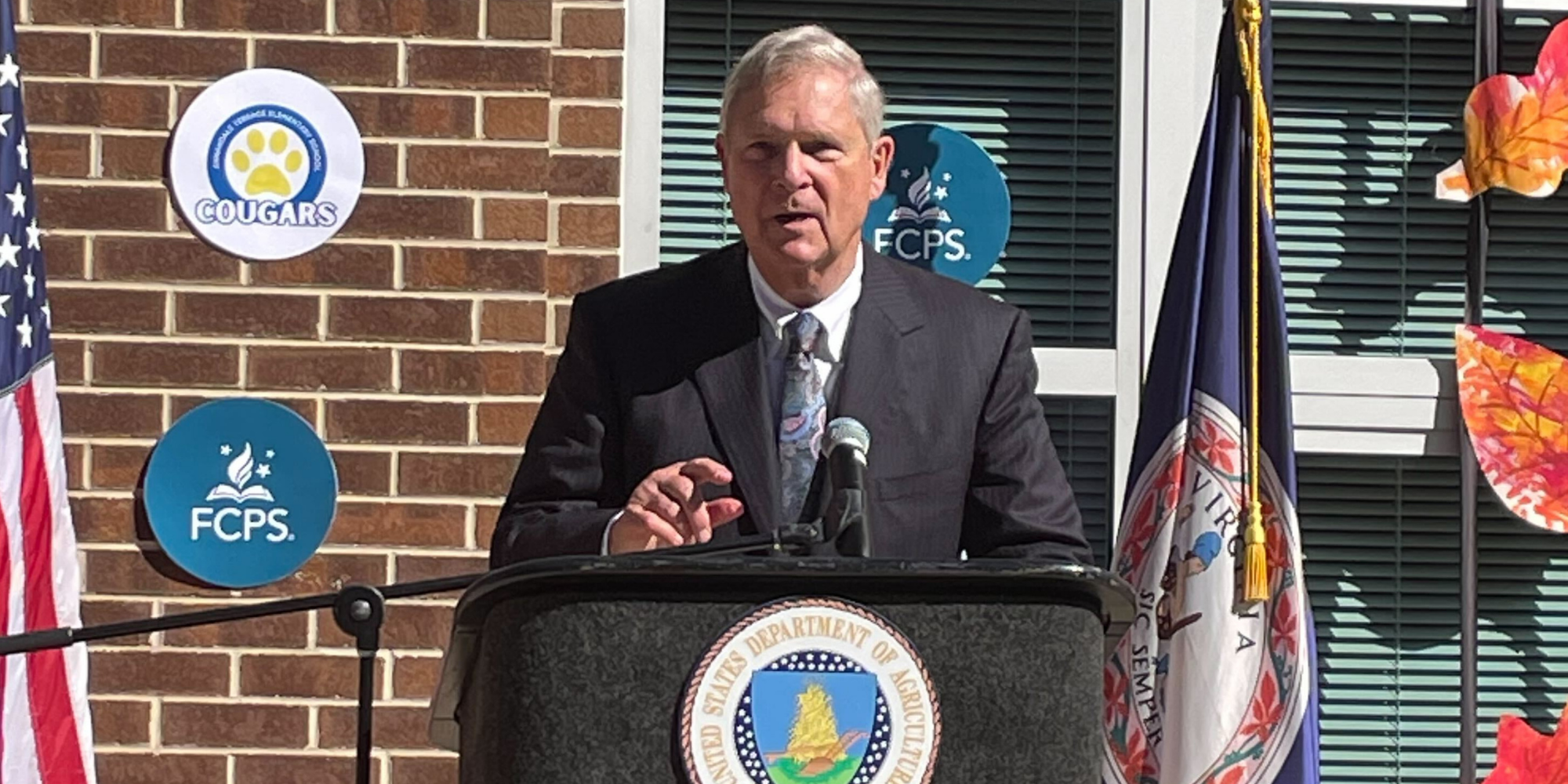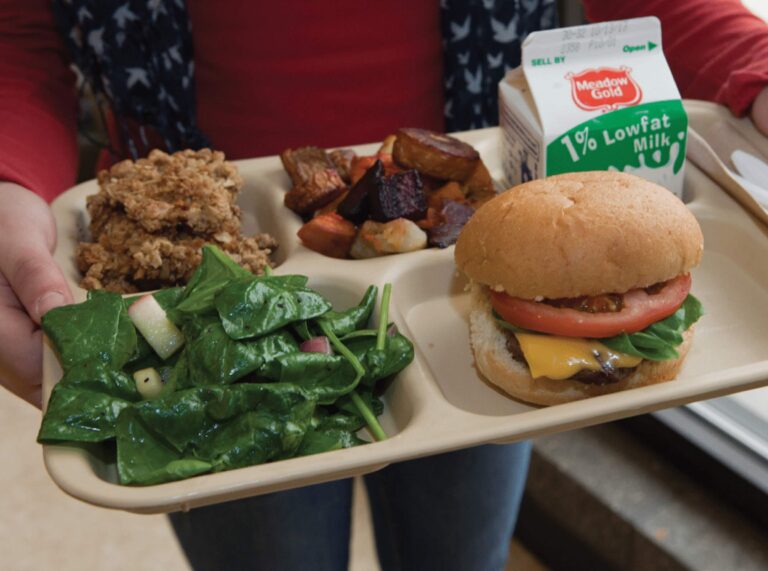Good News For National School Lunch Week and Beyond: September/October Policy Updates
Momentum for school meals for all in more states, and other news you need.
Join our corps! Applications for 2026-2027 are now open. Apply by March 30.
Momentum for school meals for all in more states, and other news you need.

Despite a tumultuous few months for the federal government, we’re heartened to see even more momentum on the policy front recently for school meals for all, local food, and other investments in kids’ health and well-being. Here are the child nutrition headlines you need to know.
The update: Bills are moving in both the Michigan House of Representatives and the Michigan Senate to codify and provide permanent funding for school meals for all in every Michigan school.
Senate Bill 500 and House Bill 5042 would work together to further nutrition security for Michigan kids through free school meals. SB 500 creates a permanent school meals for all program, while HB 5042 outlines the nuts and bolts of funding and other more technical aspects of the law. These bills look similar to the one-year budget agreement Michigan enacted last year, but would offer this program on a permanent basis.
Why it matters: While this bill has not yet started to move in the Michigan House, it has faced minimal opposition on the Senate side, which is a good sign. This legislation would create yet another state where students are entitled to free, nutritious meals at school.
What you can do: If you live in Michigan, please keep an eye out for an action alert as these bills continue to move forward. We’ll let you know when it’s time to contact your lawmakers.
The update: The USDA finalized its new Community Eligibility Provision (CEP) rule on September 26. CEP allows eligible schools to offer meals at no cost to all enrolled students without collecting household applications. Authorized by the Healthy, Hunger-Free Kids Act of 2010, CEP is a reimbursement program for schools that eliminates the need for households to apply individually, instead sharing eligibility data between specific federal assistance programs. This relieves administrative burden for both schools and families and alleviates the stigma associated with receiving free school meals. FoodCorps submitted comments in support of this rule, and we are pleased to see its enactment.
Why it matters: The new rule amends CEP regulations by lowering the threshold of students eligible for the program from 40% of students to 25% of students — meaning fewer students have to qualify for free school meals in order for a school to automatically offer free meals to all its students. This added flexibility for states and schools could ensure more kids are nourished during the school day at no cost to their families.
The update: FoodCorps was proud to join USDA Secretary Tom Vilsack in celebrating National School Lunch Week at Annandale Terrace Elementary School in Annandale, Virginia. Vilsack announced two new grant opportunities and a training and technical assistance program for schools to invest in nourishing school meals.
The pair of grants will “encourage innovative partnerships between schools and producers, growers, and processors to nourish students through transformation of the school food system,” as well as “regional efforts to nourish students, increase equity, foster a resilient supply chain, and create scalable and sustainable change for school districts across the country,” according to the USDA.
The training and technical assistance partnership will develop new tools to educate school districts on school food purchasing and organize an advisory group of stakeholders to address challenges with school food procurement. Vilsack also announced that 2024 applications are open for the Patrick Leahy Farm to School Grant Program, which helps schools incorporate local foods into their meals.
Why it matters: Grants and assistance provided by these programs will only help make nourishing, local food more accessible to more kids. Progress is incremental, and these seemingly small advancements are meaningful moves toward our 2030 goal.
What you can do: Share our social media content from this exciting day.
The update: On November 16, New Mexico will begin the rulemaking process to begin implementation for its school meals for all program. Rulemaking spells out the meaning of laws, and this process will build out definitions surrounding what counts as “farm to school” and “scratch cooking,” and how to handle food waste, including composting and sending food home with students, among other issues. As this process moves forward, lawmakers will be taking comments and input from stakeholders on how to implement this win. FoodCorps’ New Mexico Impact & Partnerships Lead, Alicia Chavez, is working with our partners in New Mexico to ensure stakeholders have an opportunity to provide input into the process.
Why it matters: Rules are an important part of the lawmaking process because they lay out the correct interpretation of the law. Establishing a solid, workable program that considers everyone’s interests is the best way to implement free school meals in a sustainable, long-lasting way.
What you can do: Make sure you’re subscribed to FoodCorps’ policy emails and watch for the comments we will submit once the process begins.

3 Reasons We Need School Meals for All

Mindful Tasting: Eating with All 5 Senses

Our 2025 Child Nutrition Policy Year in Review